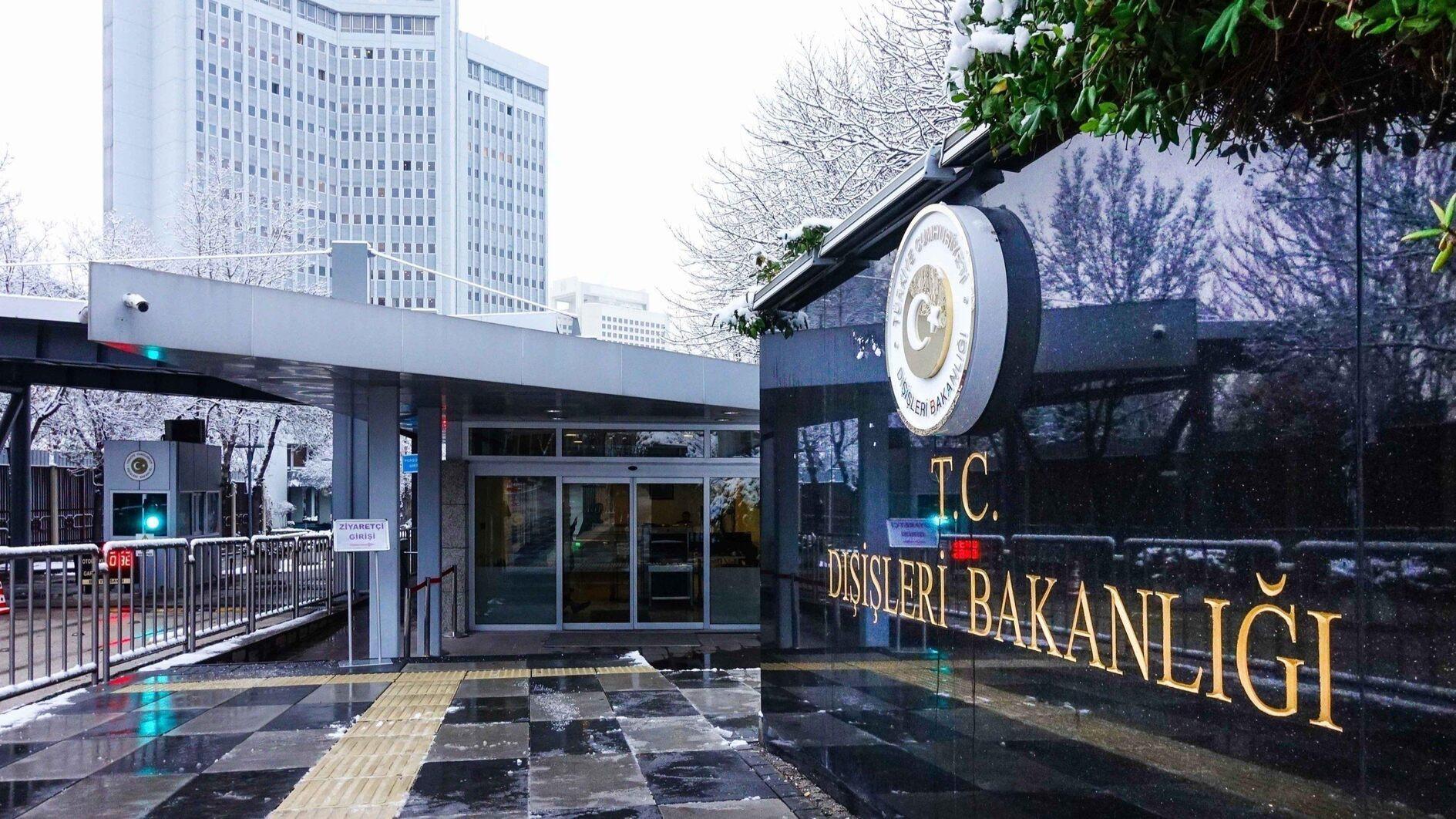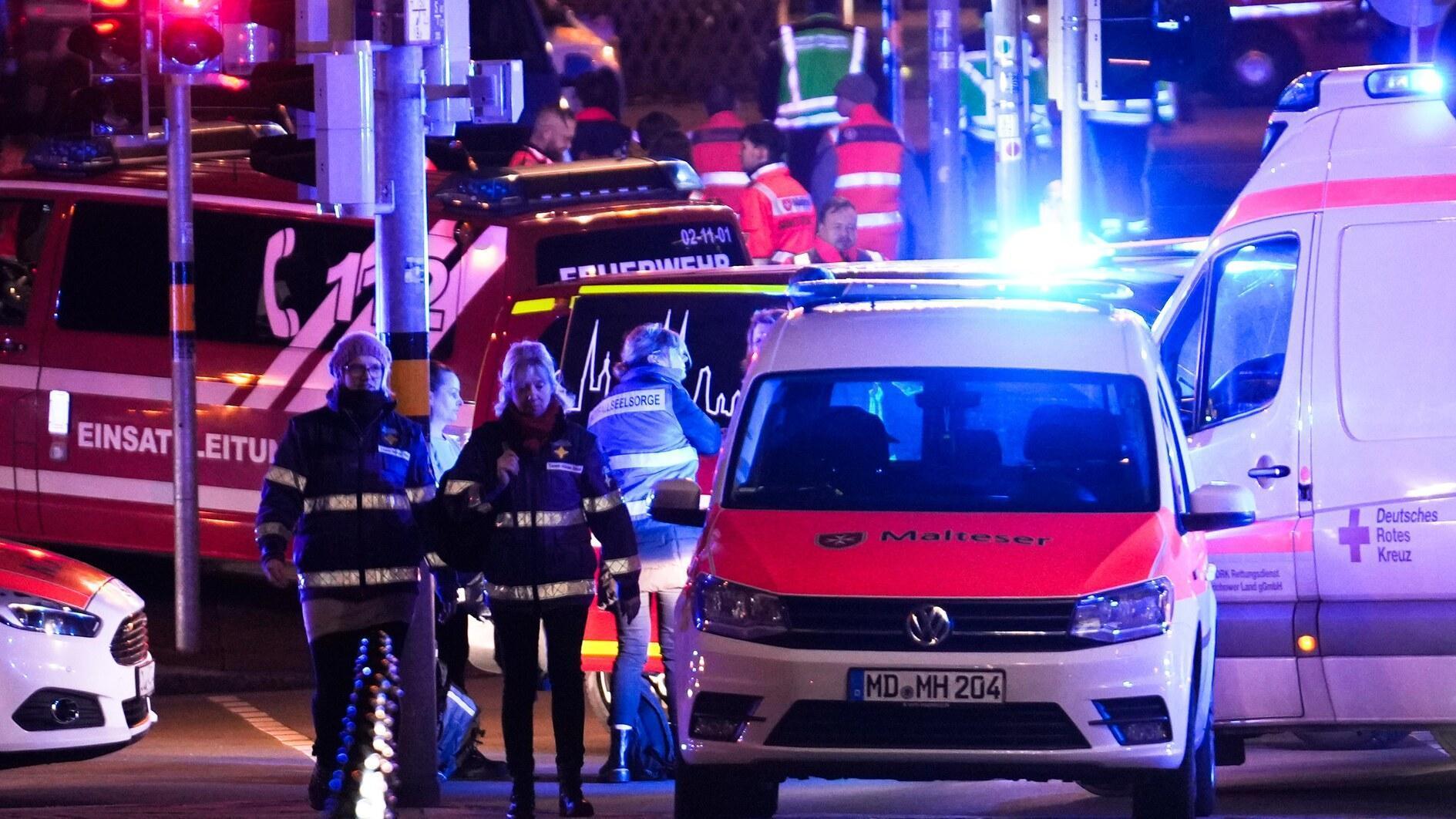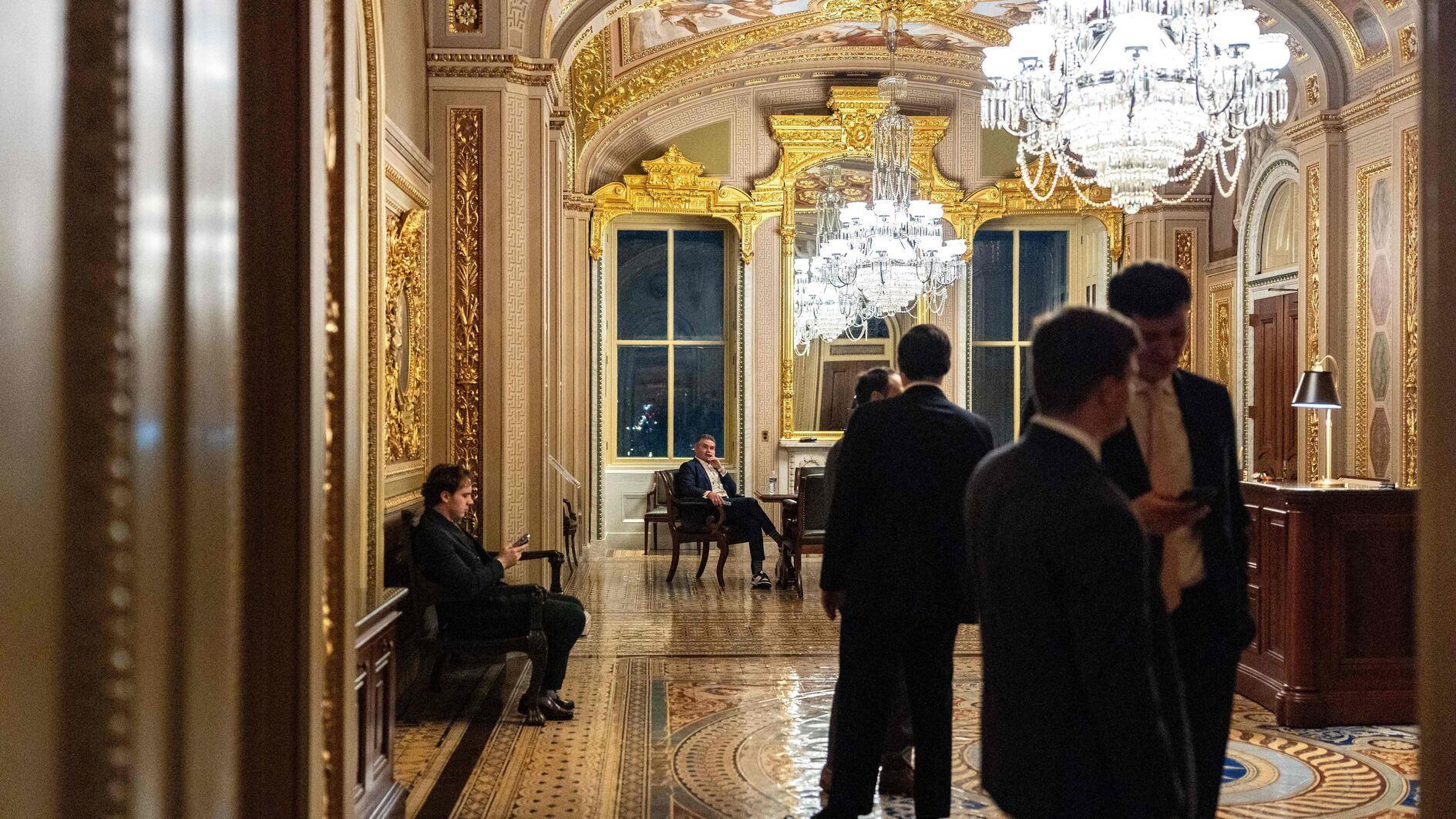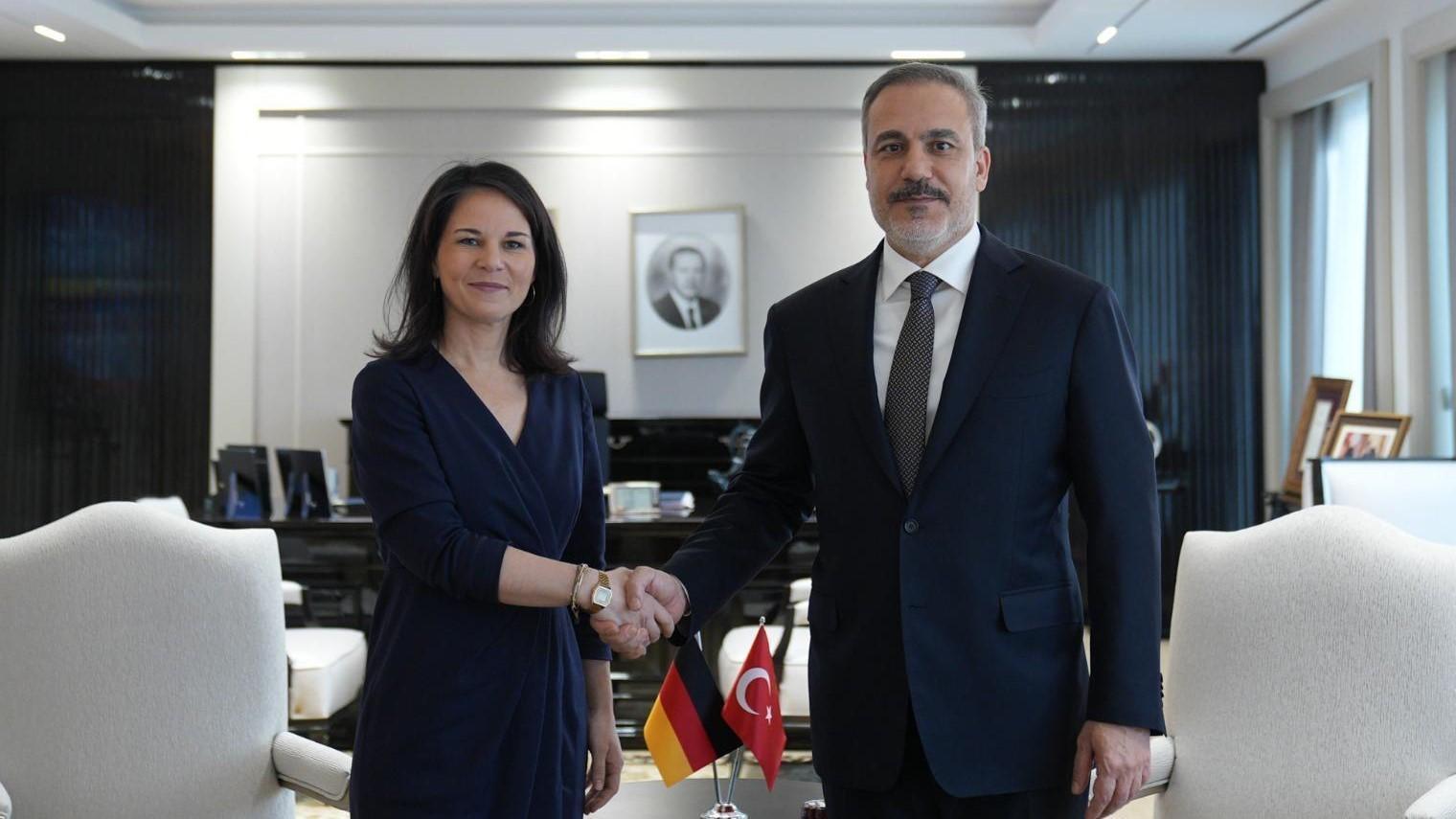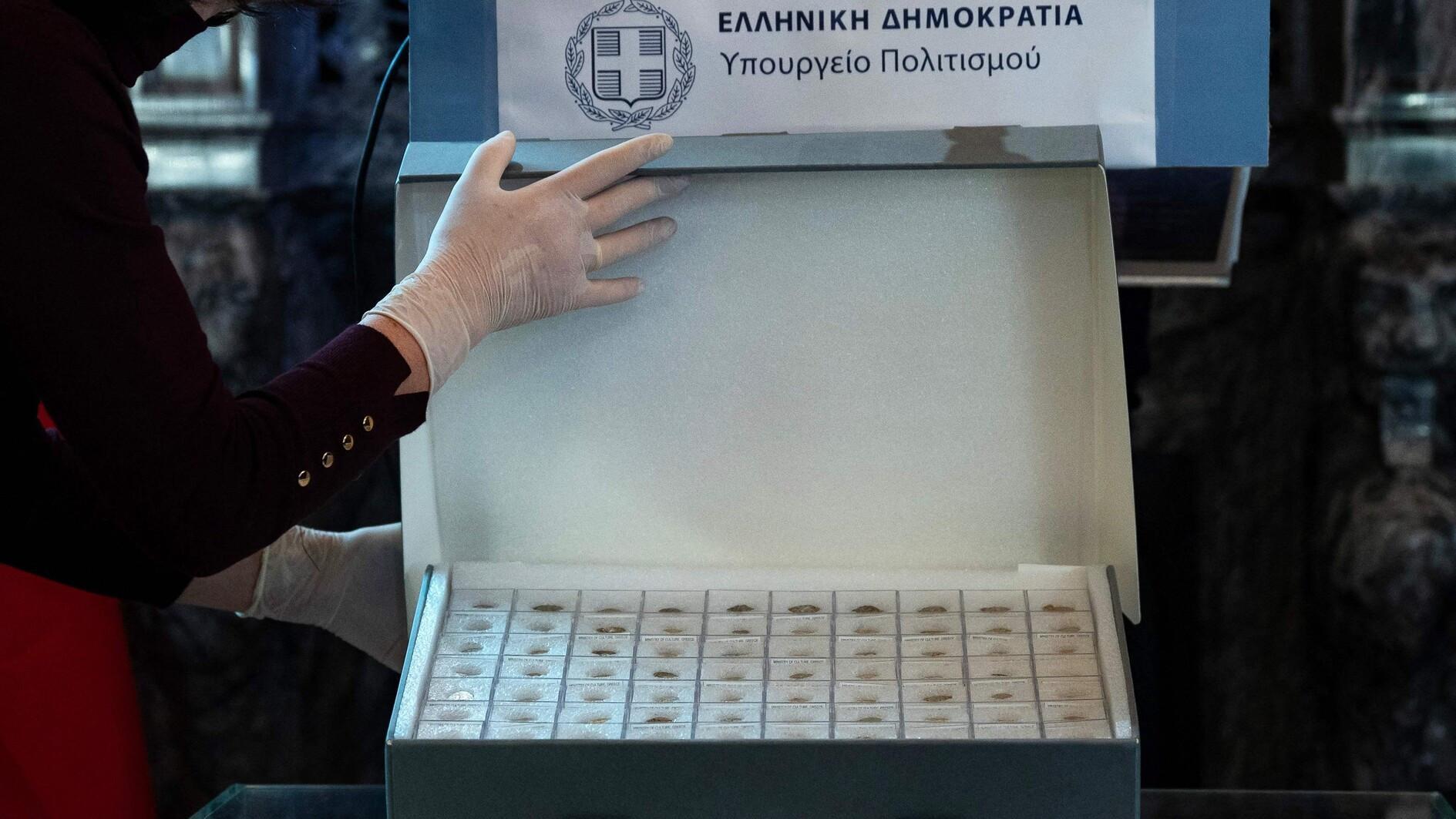Reporters address UN, ask for more protection
UNITED NATIONS - The Associated Press
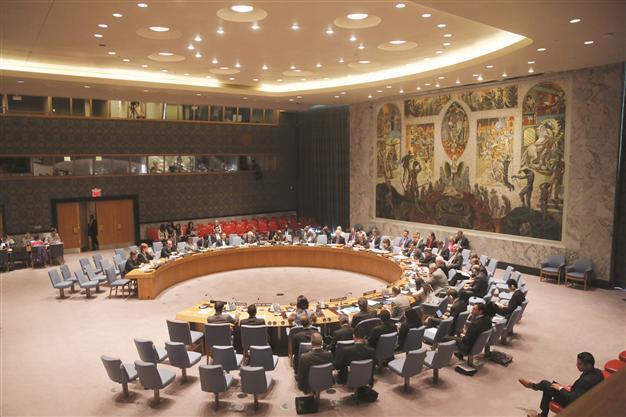
A panel of journalists and others addresses a UN Security Council meeting on the protection of civilians in armed conflict and the protection of journalists. AP photo
Four journalists addressing the U.N. Security Council on July 17 said world leaders should do more to protect reporters risking their lives in conflict situations with one foreign correspondent calling for protections similar to those afforded to diplomats.NBC’s chief foreign correspondent Richard Engel said that protecting journalists today is perhaps harder than ever “because you have to tackle the question of who is a journalist and who is an activist in a way that never existed before.”
“We’re all bloggers and punks and rebels with cameras. There is absolutely no respect for career journalists anymore,” said Engel, who was kidnapped by pro-regime gunmen in northern Syria and held for five days in Dec. 2012. Engel told council ambassadors that professional journalists should be recognized, “and just like you in the diplomatic community need protection to be objective, if you want professionals who are also objective, we need protection as well.”
‘Public’s eyes and ears’
Associated Press Executive Editor Kathleen Carroll, vice chairwoman of the Committee to Protect Journalists, said that reporters serve as the public’s eyes and ears in conflict situations by going to places and asking questions that most people cannot. “An attack on a journalist is a proxy for an attack on the ordinary citizen, an attack on that citizen’s right to information about their communities and their institutions” and their world, she said.
The council invited journalists to brief members for the first time at the invitation of the United States, which holds the Security Council presidency this month. U.N. Deputy Secretary-General Jan Eliasson opened the meeting by decrying the killing of more than 600 journalists in the past decade, including 41 in Syria last year including those who were using social media.
While the council, which deals with threats to international peace and security, was focusing on threats to journalists in armed conflict, Eliasson said journalists in many non-conflict situations around the world have also been killed and are at grave risk. According to the CPJ, “most murdered journalists - 5 in 6 - are killed in their own hometowns covering local stories - crime and corruption,” Carroll said.
Dead man walking
Mustafa Hajji Abdinur, of Agence France Presse, said like so many reporters working in Somalia he’s called “a dead man walking.” Since Somalia’s civil war began more than two decades ago, nearly 60 journalists have been killed, including 18 last year, he said.
“I am here today simply because I am lucky, because the gunmen that have killed so many of my colleagues, my friends, have not yet found me,” Abdinur said. In such terrible situations, he said, journalists continue to risk their lives because “there is no doubt that without a free press there can be no freedom for a country ...”
Iraqi Ghaith Abdul-Ahad, a foreign correspondent for The Guardian newspaper, said there’s a “sense of immunity towards all the people who kill, detain, capture journalists.” Abdul-Ahad urged the council “to recognize journalists as part of a humanitarian effort to tell a story.”
“Many of you hate us, by the way, and I know that,” he said as diplomats burst into laughter. “It’s a sign that we’re doing our job properly if we’ve managed to piss you off. But there has to be some sort of balance. Just let us be there. Treat us as human beings. Just don’t kill us.”


